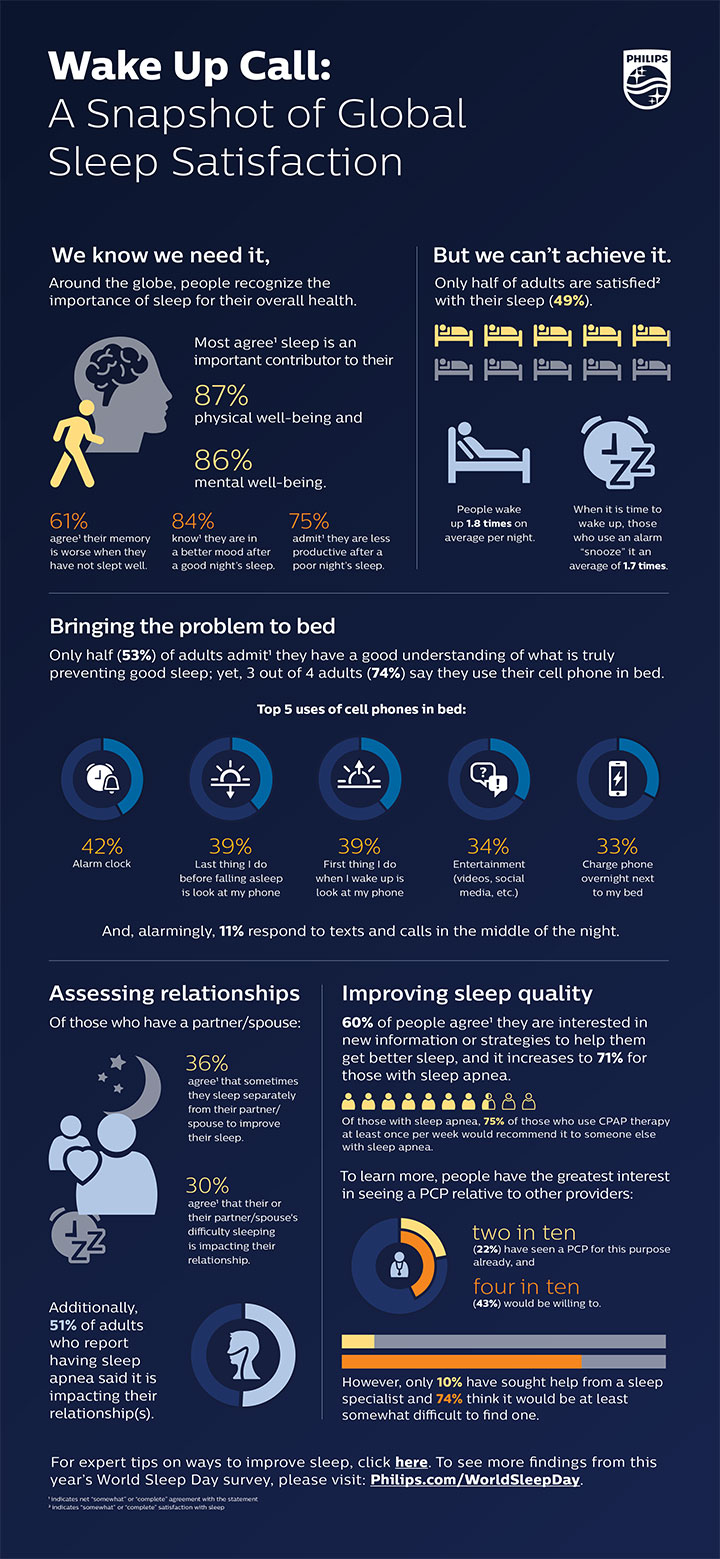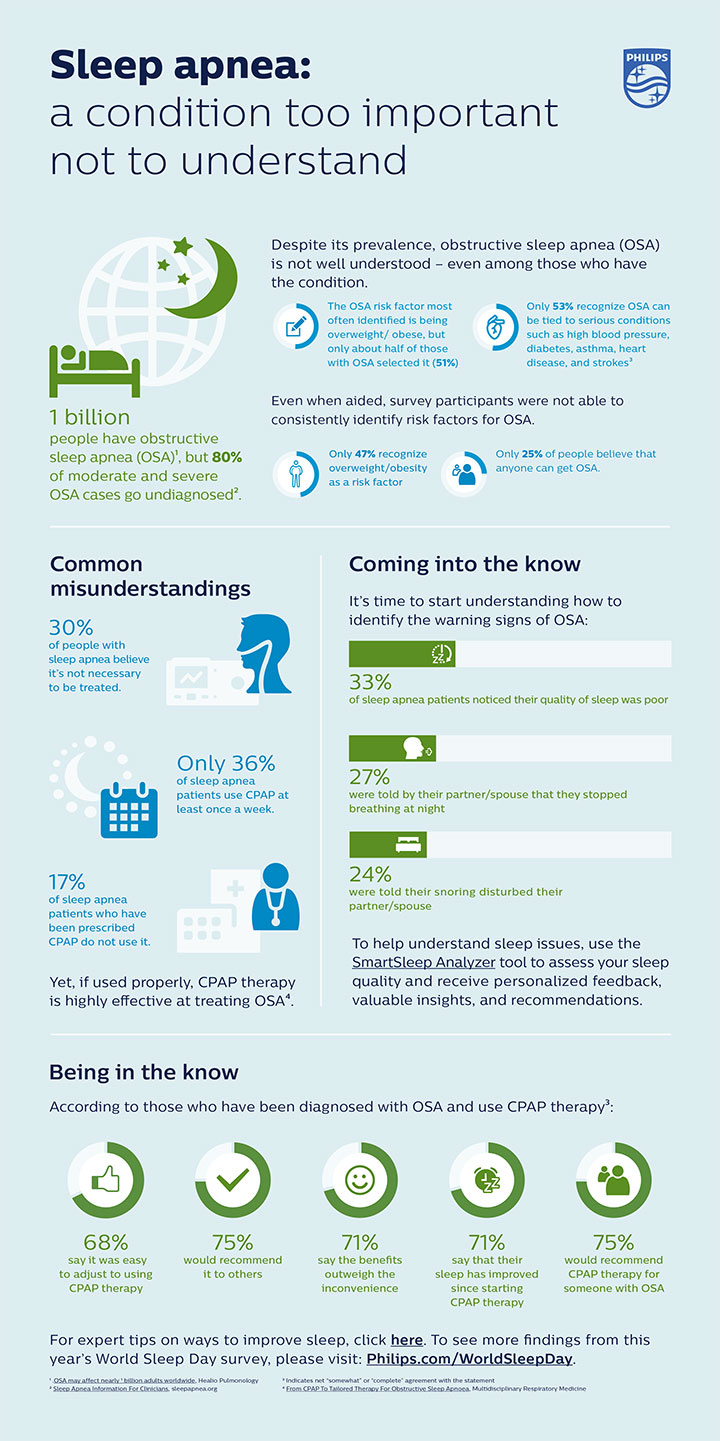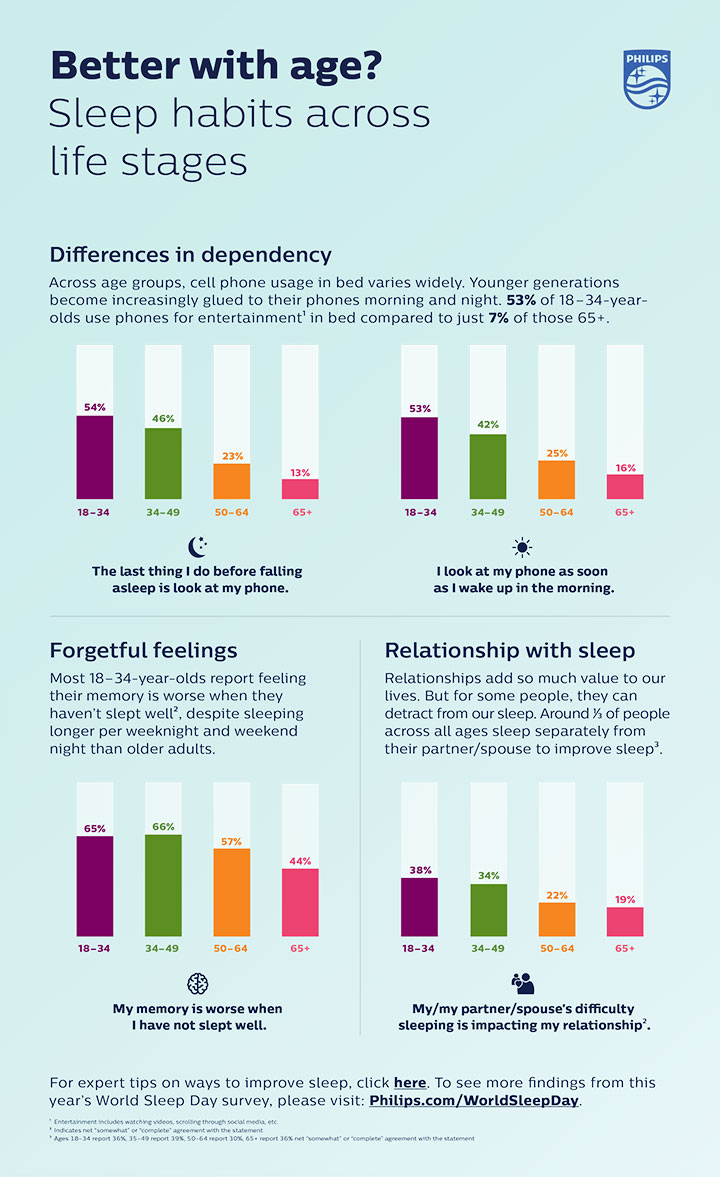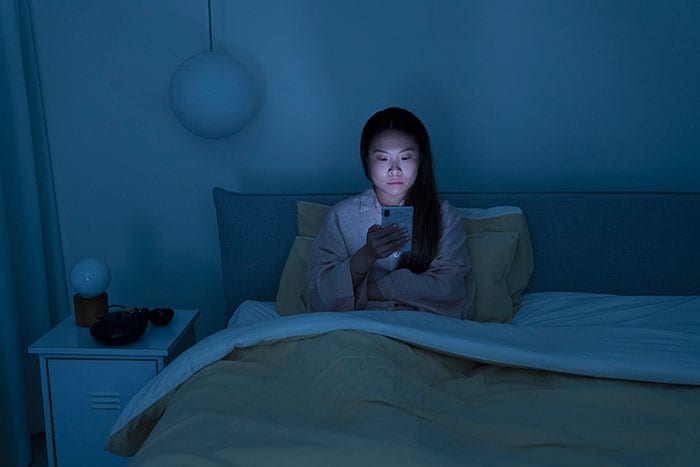Mar 02, 2020
Philips sleep survey shows only half of people worldwide are satisfied with their sleep, but are less likely than before to take action to improve it
Amsterdam, the Netherlands – Royal Philips (NYSE: PHG, AEX: PHIA), a global leader in health technology, today announced the findings from its 5th annual sleep survey in a report, “Wake Up Call: Global Sleep Satisfaction Trends.” Philips surveyed more than 13,000 adults in 13 countries to capture attitudes, perceptions, and behaviors around sleep. This year’s results show global sleep satisfaction remains low with worry/stress, relationships and cell phone use reported as key sleep inhibitors.
Worry and stress continue to affect a good night’s sleep
Only 49% of people are satisfied [1] with their sleep, with worry/stress reported as the most limiting factor to a good night’s sleep (33%). Interestingly, fewer people in 2020 are taking action to improve sleep compared to 2019, with nearly all listed strategies to improve sleep lower or consistent in 2020 when compared to 2019 results. For example, reading before bed was the most popular strategy used to improve sleep in 2019 (39%), but only 28% of people report reading to improve sleep in 2020. Other notable distinctions in sleep-related behavior appeared across age and gender differences.
As we head into the next decade, Philips is focused on designing a future where technology leveraged across the entire sleep ecosystem can help people get the most out of their lives.
Mark Aloia
PhD, Global Lead for Behavior Change, Sleep & Respiratory Care at Philips
“The decrease in people taking action to improve sleep is alarming, especially when it is clear people around the world deeply value sleep. Sleep deficit impacts people both mentally and physically, so we need to educate people on available sleep resources and empower them with the confidence that their efforts will pay off,” said Mark Aloia, PhD, Global Lead for Behavior Change, Sleep & Respiratory Care at Philips. “As we head into the next decade, Philips is focused on designing a future where technology leveraged across the entire sleep ecosystem can help people get the most out of their lives.”
Sleep issues coming between bedpartners
Factors putting quality sleep at risk stem from both social and technology distractions. When it comes to relationships, 36% of people with a partner/spouse agree [1] they sometimes sleep separately from their partner/spouse to improve their sleep, and 30% agree [1] their or their partner/spouse's difficulty sleeping is impacting their relationship. Despite experts’ recommendations to the contrary, almost 4-in-ten report using their phones right before falling asleep (39%) or as soon as they wake up (39%). While external factors can be altered to improve sleep, some sleep conditions are outside of a person’s control. This year, respondents report lower rates of insomnia, snoring, shift work disorder and chronic pain, but sleep apnea remains consistent (2019: 10% vs. 2020: 9%). Of those reporting to have sleep apnea, 51% said their sleep apnea is impacting their relationship(s). Yet, 48% of people with sleep apnea said they felt getting good sleep was out of their control – even though a variety of solutions exist to treat it. The desire for help is there, as 60% of people agree [1] they are interested in new information or strategies to help them get better sleep. Watching TV remains the most common strategy people use to improve their sleep (2019: 37% vs. 2020: 33%), and new data this year shows 15% have tried or currently use either marijuana or CBD oil to better their sleep. For more insight from this year or past years’ surveys, please visit Philips.com/WorldSleepDay. Using 35 years of deep clinical expertise in sleep technology, Philips’ growing portfolio of sleep solutions seek to address 80% of the most common sleep issues [2]. To learn more about the Global Sleep Survey and Philips’ commitment to improving access to sleep technology worldwide, visit Philips.com/WorldSleepDay. To join the conversation about sleep health and Philips’ growing suite of consumer and scripted sleep solutions, follow @Philips, @PhilipsSleepWellness or @PhilipsResp. [1] indicates net “somewhat” or “complete” agreement with the statement [2] Snoring, Short Sleep, Insomnia, and Obstructive Sleep Apnea
About Royal Philips
Royal Philips (NYSE: PHG, AEX: PHIA) is a leading health technology company focused on improving people's health and enabling better outcomes across the health continuum from healthy living and prevention, to diagnosis, treatment and home care. Philips leverages advanced technology and deep clinical and consumer insights to deliver integrated solutions. Headquartered in the Netherlands, the company is a leader in diagnostic imaging, image-guided therapy, patient monitoring and health informatics, as well as in consumer health and home care. Philips generated 2019 sales of EUR 19.5 billion and employs approximately 80,000 employees with sales and services in more than 100 countries. News about Philips can be found at www.philips.com/newscenter.
About the Survey
This survey was conducted online by KJT Group, Inc. on behalf of Philips from November 12 – December 5, 2019 among 13,004 adults ages 18 and older in 13 countries (Australia: n=1,000; Brazil: n=1,000; China: n=1,001; France: n=1,000; Germany: n=1,000; India: n=1,000; Italy: n=1,000; Japan: n=1,001; Netherlands: n=1,001; Singapore: n=1,000; South Korea: n=1,000; United Kingdom: n=1,000; and the U.S.: n=1,001). The survey was web-based and self-administered in the primary language(s) of each country. These were non-probability samples and thus a margin of error cannot be accurately estimated. For complete survey methodology, including weighting variables, please contact Meredith Amoroso at meredith.amoroso@philips.com.
Topics
Contacts

Kathy O'Reilly
Philips Global Press Office Tel.: +1 978-221-8919
You are about to visit a Philips global content page
Continue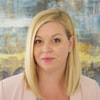
Meredith Amoroso
Philips Global Press Office Tel: +1 724-584-8991
You are about to visit a Philips global content page
Continue